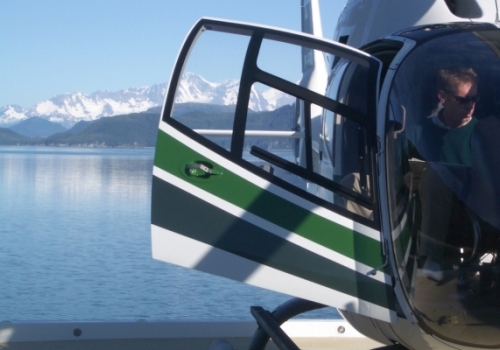
Growing up in New Zealand, a chance conversation with friends around a campfire opened up a whole new world of opportunity and adventure for Simon Ladbrooke, taking him around the world from Venice to the Galapagos and Myanmar. Now Yacht Captain Consultant at Quay Crew based in the UK, he looks back fondly at the many highlights during his career at sea, and shares his views on the evolving landscape of crew placement today.
Tell me a little about your background.
I grew up in Napier, New Zealand. My father worked for Air New Zealand and so we travelled a lot. I always wanted to be a pilot, however my eyesight deteriorated during high school, so I decided to enter the building industry.
What happened around a campfire one New Year’s Eve and how did it change your life?
My good friend Chris Sinclair returned from overseas to spend Christmas with his family and surprised a group of us on New Year's Eve. We were at our usual spot, camping on the edge of Lake Atiamuri, just north of Taupo. Chris shared his amazing stories of travelling around the Mediterranean on this shiny ‘superyacht’. None of us had seen or heard of anything like this, perhaps in a James Bond Movie, but we had no idea there were marinas full of these floating palaces, that required crew. Chris took great pleasure in showing us some of the US dollars he had brought home, tips from guests for teaching their children how to waterski, taking them to the beach, and driving them ashore for dinner. This was in addition to being paid a handsome monthly salary.
I was a qualified joiner (ship' carpenter he told me), and I had part ownership in a ski boat (water sports instructor he said). All I had to do was spend a week learning first aid, rules of the road and basic safety at sea, and I had everything I needed to buy a one way ticket to France, so that’s exactly what I did.
You certainly got lucky with your first job – tell me more!
I arrived in Antibes and discovered ‘The Office’ and with some help from a local yachtie I wrote my CV and went to visit the crew agent, Adrian Fisher. He had incredibly high standards and if he didn’t like the look of you, you were promptly shown the door, so I was on my best behaviour, sat up straight, looked him in the eye, and offered a firm handshake.
After a long hard stare and uncomfortable silence, he told me he was going to get me a job. He phoned a captain and described me in detail, reassuring him I would be perfect for the role. After a short and nervous interview with the captain I was offered the position, and told to go back to my hostel, and stay there, do not go out! Adrian picked me up the next morning at 8am and drove me to Nice Airport, destination Venice. The Air Italia plane was small and cramped, I was sitting next to a rather large man smoking a cigar, with a very small dog on his lap.
The captain appeared briefly from the cockpit, with a cigarette in his mouth, indicating to us the location of the lifejackets and emergency exit, and off we went.
There to meet me at Venice Airport was the chief officer, dressed immaculately in whites from head to toe. We sped away from the airport in a water taxi and carved our way through the narrow canals. Out into the Grand Canal we sped, and off to our port side was Turquoise, my home for the next three and a half years.
I was met on the gangway by the captain and the owner, and after a few pleasantries I was told to go below where the interior staff would show me to my cabin and get me into uniform. Lunch had finished but they had plated up for me.
The first few days consisted of learning to drive one of the yacht's two custom tenders, assisting the crew with transforming the main salon to accommodate the Venice Quartet who were due to play that evening, and a compulsory two days off to watch the annual gondola races and explore the neighbouring island.
First stop was Turkey where I was put through the Padi Dive School, from zero to hero in the turquoise waters off the coast of Gocek. From there we cruised the Middle East, Red Sea, Indian Ocean, Southeast Asia, Indonesia, Australia, and beyond.
Did you have a unique skill or superpower on board?
When I worked on Elixir, every charter principle received a bottle of homemade limoncello. I came up with the idea when I purchased a tea towel for my mum when visiting Capri in my early yachting years. It was bright and colourful and listed all the ingredients of limoncello, so after some research I gathered the ingredients and did a trial run. After a few painful hangovers I perfected the recipe, and started producing it for every charter principle that came on board. Every bottle was unique with ingredients sourced locally wherever the yacht happened to be, plus I made my own labels with a personalised message. My limoncello was always well received, sometimes more than expensive gifts they had received. As they say, it’s the thought that counts.
Seriously though, I like to think my sense of humour and witty puns are what I’m best known for!
Of all the experiences and places you visited, what was the greatest highlight?
Flying guests over the glaciers in Alaska, taking them heli fishing during the salmon season, rescuing terrified guests who were being chased by a brown bear, flying the owner’s dog from Key West to Naples for a vet’s appointment. All great experiences for me, the dog however seemed quite unimpressed.
By far the best experience was visiting the Galapagos. They are the most incredible and diverse group of islands I have ever visited, where nature rules supreme. And under the surface of the water, diving Black Rock in Myanmar - it has the most spectacular display of underwater marine life I’ve ever seen.
What did you love most about working at sea?
The sunrises and sunsets, and unexpected appearance of sea life. The clean, almost medicinal air that keep us healthy and active. Sighting land for the first time on the horizon, the change in the colour of the water, and the fragrance of life ashore as you near the coastline. Working alongside likeminded adventurous professionals.
What prompted you to move ashore?
I missed my family and despite the luxury of being on time-for-time rotation, spending half the year away from home was proving too much. My wife has always been incredibly supportive during my years at sea, taking on the responsibility of bringing up the children on her own, sacrificing her career, but it was time to come home.
Recruitment had always been an element of captaincy I had enjoyed, and I’d often thought about it as my next career. A coffee and a friendly catchup with Tim Clarke at Quay Crew led to another discussion that turned into a job offer, which I happily accepted.
Many people leave for the same reason, so how can the superyacht industry retain experienced crew?
My reasons for leaving yachting are probably in the minority. All yachts need a captain whether full time or rotational, and both those options require sacrifice. I think the industry offers captains far better terms than it did 10 years ago when almost every captain’s position was full time with 38 days of annual leave. I am now regularly seeing yachts under 50m in length offering full rotation which is fantastic for young captains needing a good work life balance.
Rotation was introduced to yachting from the commercial sector, and it’s slowly spread from engineers to captains, HODs and now junior crew as well. Generally, the older crew appreciate rotation, extended leave, and bonuses, whereas younger crew tend to expect it, so their expectations need to be managed.
There will always be dedicated, loyal and ambitious crew who are happy to commit long term and make sacrifices to further their careers. Then there are crew who are affected by external influences and are on the eternal search for more, better, bigger. Social media, the internet and the recent launch of Starlink has enabled crew to be online fulltime with unlimited access to any content, enabling them to continually share information and compare which grass is greener.
‘Back in the day’ we had no internet, and if the yacht’s phone rang you knew it was going to be something of major importance. Sometimes I didn’t see another yacht for six months. My job was amazing, I pinched myself every day as I couldn’t believe I was actually being paid to use the water sports equipment, go scuba diving, or visit the pyramids.
These days it’s common for junior crew to ask a lot of questions prior to accepting a job, so we need to highlight every reason they should accept the position, and back it up with accurate data. Taking the time to get to know a yacht, it’s crew and the culture on board is essential to ensure compatible people are placed together. I think longevity could be improved, and it starts with careful crew selection.
What are the positives that make crew want to stay with a particular vessel?
It starts from the top. A strong and fair captain who encourages HODs to run their departments and lead their crew, and provides support through regular meetings and mentorship generally stands a better chance of retaining their crew.
Owners that reward their crew for longevity, cover the cost of their ongoing maritime education, acknowledge their good work, and support their career aspirations in terms of internal promotion (where possible) will always attract good crew.
Busy yachts that cruise or charter regularly also tend to retain crew.
It’s often said that younger generations are less resilient and have unrealistic expectations – is that fair?
No, I think young people are great. As mentioned above, I think social media creates the expectation, realistic or not, that often influences a crew member's decision making. It’s up to us as recruiters to ask good questions to find out who they are, what their career aspirations are, and essentially what’s most important to them.
The subject that comes up the most is rotation. Most think rotation is the answer to all their dreams but, as an example, if they need to build up sea time, or perhaps save money for a deposit on a house, having half the year at home spending money is probably not going to get them any closer to sitting their next exam, or building a big enough pot to get into their first home. Once this is explained, the penny drops and they start considering the better option. It’s all about asking questions, the more we know the better we can advise.
If you were tasked with finding 10 great candidates who had never heard of the yachting industry, where would you look?
Hospitality industry
Water sports centres
Top restaurants and bars
Airline industry
Health clubs
Outdoor centres
The military
Universities
Culinary schools
High end retail sector
What do you think are the most important qualities for a successful career on board?
Lead by example. Empower crew to make good decisions. Never take anything or anyone for granted. Never forget your humble beginnings. Appreciate everything.
If the planets hadn’t aligned as they did, what would you be doing instead?
Studying medicine or law.
New Zealand-born Simon has worked in the superyacht industry for over 25 years, most recently as Build and Operational Captain on 55m Elixir/Gigagi for six years. He has also captained several other prestigious vessels and worked as a project manager in boat building ashore. Bringing a wealth of experience to Quay Crew as Yacht Captain Consultant, you can reach Simon directly by email.

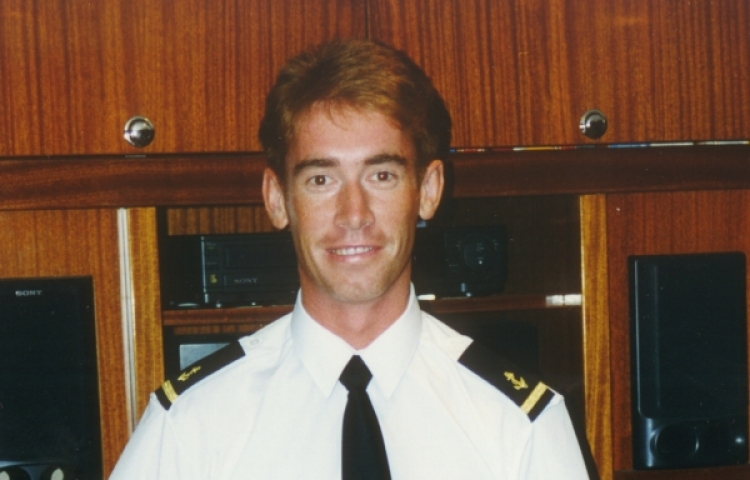
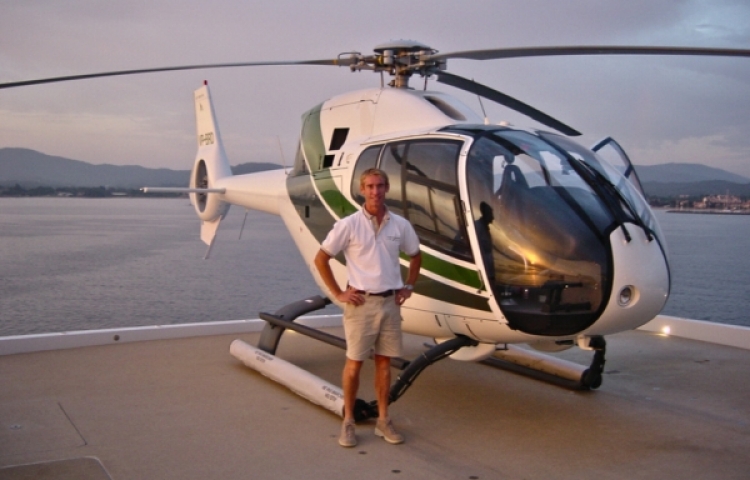
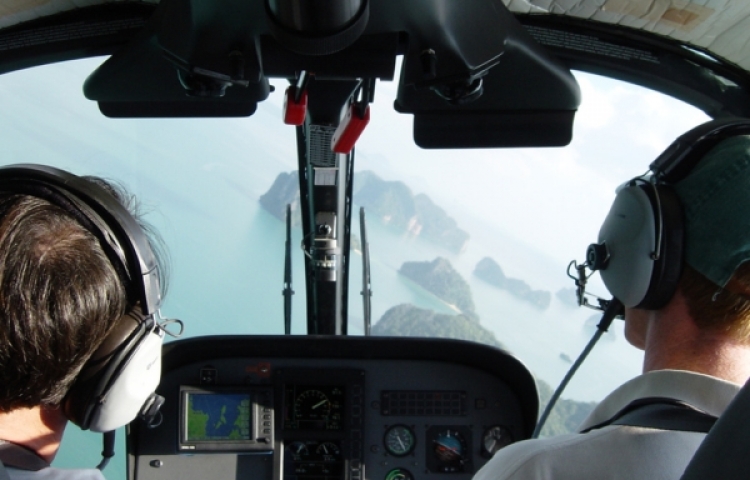
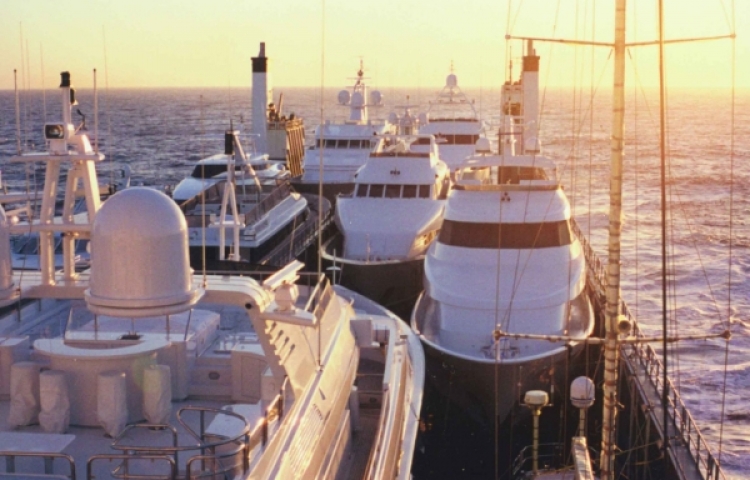
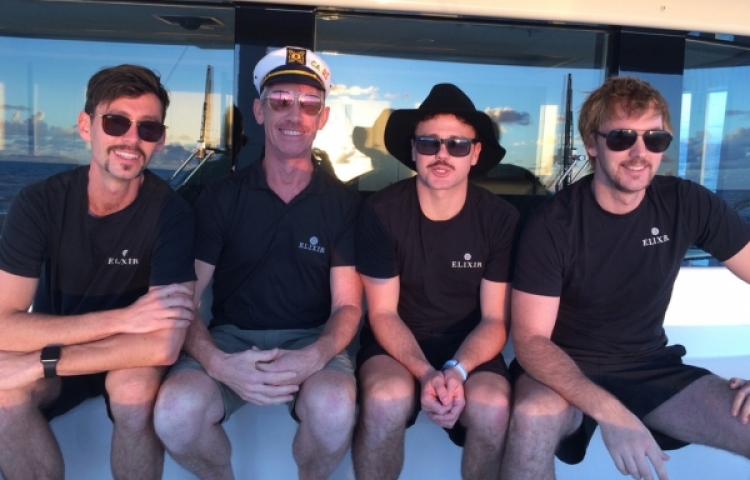

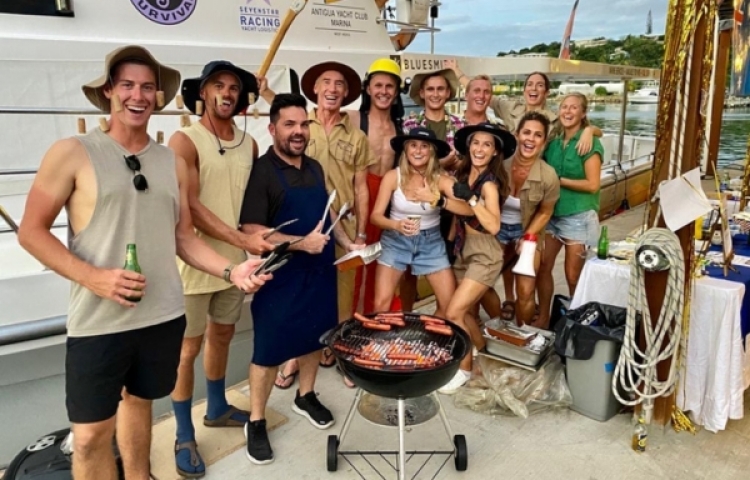
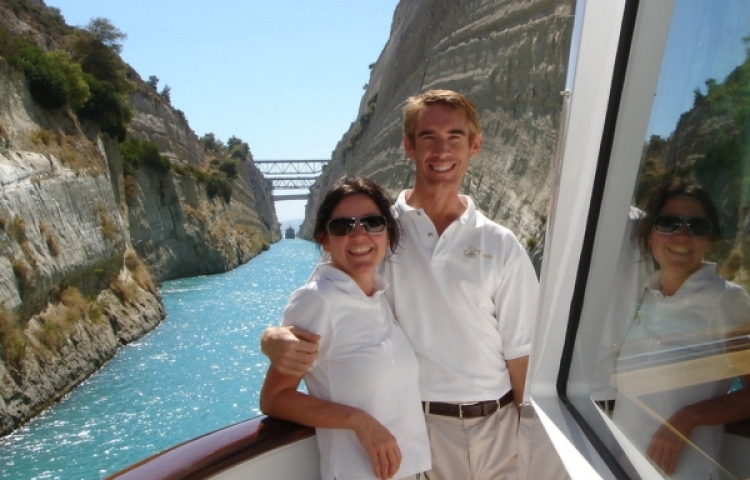

Post your comment
You cannot post comments until you have logged in.
Login to post a commentComments
No one has commented on this page yet.
RSS feed for comments on this page | RSS feed for all comments